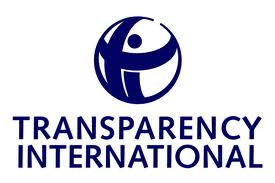 Transparency International welcomes new landmark legislation to tackle money laundering and anonymous shell companies in the EU. The revisions to the 4th Anti-Money Laundering Directive agreed by the European Parliament and EU Council are an important step forward in the fight against corruption, and go far beyond the principles agreed by G20 leaders in November. However, concerns remain that the final legislation will fall short of full transparency of the real ‘beneficial’ owners behind companies and trusts demanded by anti-corruption activists worldwide. The identities of many individuals involved in grand corruption have been concealed through the use of anonymous companies, trusts and other entities.
Transparency International welcomes new landmark legislation to tackle money laundering and anonymous shell companies in the EU. The revisions to the 4th Anti-Money Laundering Directive agreed by the European Parliament and EU Council are an important step forward in the fight against corruption, and go far beyond the principles agreed by G20 leaders in November. However, concerns remain that the final legislation will fall short of full transparency of the real ‘beneficial’ owners behind companies and trusts demanded by anti-corruption activists worldwide. The identities of many individuals involved in grand corruption have been concealed through the use of anonymous companies, trusts and other entities.
Under the new legislation full access to company beneficial ownership data will be granted to law enforcement and relevant government bodies in central registers established by EU Member States. Partial access will be provided to the public such as investigative journalists and NGOs if they can prove a legitimate interest. A drawback of the compromise would be the creation of a new layer of bureaucracy to manage requests, which could also slow down investigations. For trusts, information will be collected in closed centralised registers available only to government bodies and will not be available to the public.
“Yesterday’s decision to provide access to those with an interest in following the corruption money trail is a big step forward. However a system which limits access is likely to be more cumbersome, expensive and could be used as an excuse to deny meaningful public access. It remains unclear how countries will assess who has a ‘legitimate interest’,” said Carl Dolan, Director of Transparency International EU. “The compromise may end up replacing one big loophole with many small loopholes.”
According to research by Global Financial Integrity, nearly $70 billion flowed illegally into or out of emerging EU economies in 2011. At the same time global detection rates for illicit funds by law enforcement are estimated to be as low as 1 percent for criminal proceeds and the seizure rate at 0.2 per cent (UNODC). According to an analysis by the World Bank and UN of over 200 grand corruption cases, 70 per cent involved corrupt politicians, anonymous companies and trusts to obscure their identity.
“Requiring the public to prove a “legitimate interest” is contradictory to the idea of transparency, and places all the burden on the public, rather than potential criminals who treat the European financial system like their personal launderette,” said Nienke Palstra, EU Policy Officer.
With the agreement of the Directive, EU Member States have two years to transpose the new standards into their national legislation. Transparency International encourages EU Member States to follow the UK, France, Denmark and the Netherlands in their plans for full public disclosure of company beneficial owners.
The final agreement is an improvement on the European Commission’s original 2013 proposal in that it provides for centralised registers that includes information on the beneficial owners of trusts and other legal entities as well as companies. The negotiating teams from the European Parliament and the Italian Presidency of the EU Council should be congratulated on ensuring these important revisions will become EU law.
